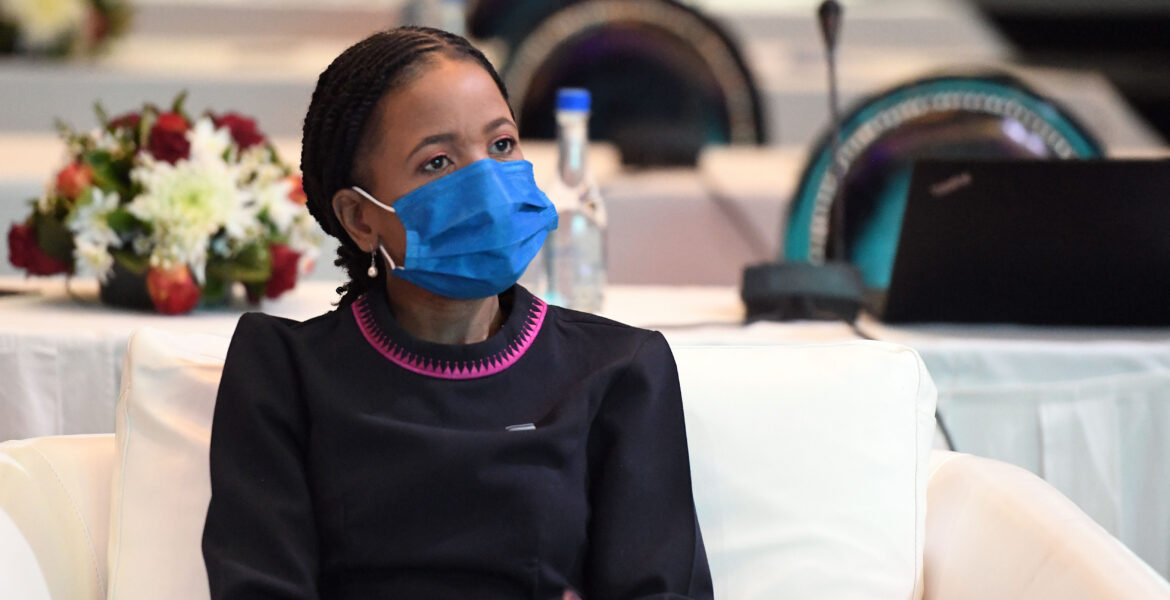Although signs of recovery are evident, it takes a lot more time for the economic scarring to wear off after a bout of severely restricted economic activity, writes GAZETTE REPORTER.
The COVID-19 pestilence reared its ugly head and it didn’t take long before the hem of the economy ripped. Speaking at the 2021 Post-COVID Innovation Conference, the Minister of Finance and Economic Development, Peggy Serame, noted: “Almost all economic sectors in the domestic economy experienced negative growth in 2020, resulting in the overall contraction of 8.5 percent in 2020, worse than the originally forecasted contraction of 7.9 percent, which shows the severe impact of the outbreak, and partly due to technical adjustments to the GDP figures.”
Economic literature provides that though an economy may experience recovery, particularly in numbers, following a bout of severely restricted economic activity, it takes a lot more time for the economic scarring to wear off. Economic scarring is referred to as the long-lasting damage that ripples through the different facets of life, affecting both individuals and the economy at large.
One of the architects of the economy, the government, is scrambling to put the economy back together into a recognisable shape. On the back of the fatal COVID-19 pandemic that continues to haunt people and economies, Minister Serame shared optimism for an economic recovery. “Signs of recovery are evident in 2021, as the domestic economy expanded by 36 percent during the second quarter of 2021, compared to a contraction of 26 percent in the same period in 2020.”
Prior to COVID-19, Botswana was gnawed at by economic ills such as high unemployment, inequality and poverty. It isn’t difficult to deduce that COVID-19 further rampaged lives, pushing them deeper into the abyss due to job losses and salary cuts. Local economic think tank, Econsult, states in its 2021 third quarter review: “The broader socio-economic impact of the pandemic may, of course, be hidden by a lack of up-to-date, with no recent data on poverty, or household incomes or expenditures.”
A previous situational analysis that was done under the private sector development programme (PSDP) noted that Botswana’s private sector has too many small scale companies parallel to fewer multinational companies, thus lacking in medium enterprises. One particular set that suffered the heavier brunt of the pandemic are small enterprises, some of whom are in the informal sector.
Some of the interventions that government introduced at the height of the pandemic included financial relief payments (P1000) for the informal sector and small enterprises. Due to their informal operations, other relief measures such as wage subsidies and industry support funding did not apply to them. Unlike interventions targeted at the private sector, some of which remain available to businesses, the assistance offered small businesses was a one-time intervention. This may likely harden the reality that even though the economy is at the wake of recovery, there remains a considerable set of people who will suffer the lasting consequences of high unemployment, poverty and income inequality. This is especially worrisome, given that long before the advent of COVID-19, wealth inequality had been endemic to Botswana and is now considered extreme. A World Bank previously found that Botswana was the third most unequal country in the world.
At the height of the pandemic in the past months, the formal private sector as well as government introduced a flexible working arrangement in an attempt to curb the spread of COVID-19. This was done by reducing the number of people in the workplace at any given time. From an economic stance, normal working hours would mean productive activities are returned to full capacity, and as a result may likely spur expansion in the economy. The expected upswing in economic activity could, among other things, be attributed to the return to normal working hours.
But the same cannot be said about the informal sector as it is likely that the crippling access to cash could have permanently taken them out of business or put them into the fray. For those whose businesses are hanging on by a thread, the only choice may be to bootstrap their businesses back into survival without any government assistance.

